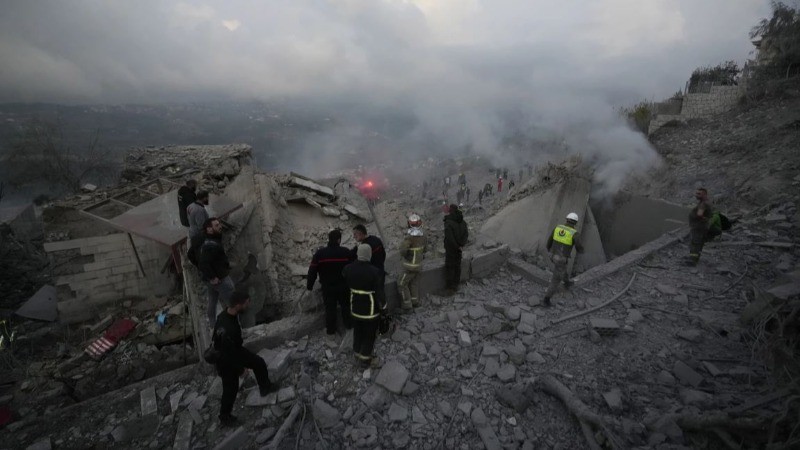
The ongoing conflict between Israel and Hezbollah has had a severe impact on Lebanese civilians, particularly the Shiite Muslim community. Many Shiites believe they are being disproportionately targeted because they share a religious identity with Hezbollah and often reside in the same areas.
“This is clear,” said Wael Murtada, a young Shiite man, as he anxiously observed paramedics searching through rubble after an Israeli airstrike destroyed his uncle’s two-story home, killing 10 people. “Who else is being attacked?”
Israeli forces have primarily focused their attacks on southern and northeastern villages in Lebanon, as well as neighborhoods in southern Beirut. These regions are known as Hezbollah strongholds, where militants and their families often reside alongside large numbers of Shiites not affiliated with the group.
Israel maintains that its military actions are solely directed at Hezbollah and not the Lebanese people or the Shiite faith. According to Israeli officials, the strikes are intended to target members of the Iran-backed group to halt their ongoing rocket launches over the border. However, individuals like Murtada find little comfort in these statements, as the death toll among Shiite civilians continues to rise amid the escalating violence.
The toll on the Shiite community is not limited to casualties alone. Entire neighborhoods in the coastal city of Tyre have been leveled, and much of the historic market in the city of Nabatiyeh, dating back to the Ottoman period, has been destroyed. In Baalbek, an airstrike severely damaged the iconic Hotel Palmyra, which dates to the late 19th century, as well as a historic residence from the Ottoman era.
“Lebanese Shias are facing collective punishment. Their cities, cultural heritage, and historic sites are being wiped out,” said Mohanad Hage Ali, a senior fellow at a research center in Beirut.
As Shiites flee from their devastated communities, the conflict has followed them to other parts of Lebanon, raising tensions in the process. Numerous Israeli airstrikes have hit Christian, Sunni, and Druze regions, where displaced Shiites sought refuge. This has led to growing concerns among local residents, who now hesitate to offer shelter out of fear that those seeking safety may have ties to Hezbollah.
“The Israelis are attacking all of Lebanon,” said Wassef Harakeh, a lawyer from the southern suburbs of Beirut. In 2022, he ran against Hezbollah in Lebanon’s parliamentary elections, and his office was recently destroyed by an Israeli airstrike. He believes that Israel’s actions are, in part, designed to deepen internal divisions within Lebanon, a country that has a long history of sectarian strife, despite its diverse communities currently living together in relative peace.
Some Shiites argue that Israel's past statements have fueled their belief that the broader Shiite community is being targeted to apply pressure on Hezbollah. A frequently mentioned example is the "Dahiyeh doctrine," a strategy named after Beirut’s southern suburbs, where Hezbollah’s headquarters are located. These areas saw extensive destruction during both the 2006 and current conflicts. Israel argues that Hezbollah uses these regions to store weapons and house fighters, turning them into legitimate military targets.